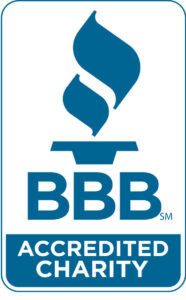NYC Budget Watch:
FY 26 Preliminary Budget
Purpose
With increasing uncertainty about NYC funding for critical government services and functions in Fiscal Year 2026 and the outyears, particularly given projected federal and State funding reductions, FPWA aims to ensure our members and the wider nonprofit community are informed and kept apprised of the proposed City budget and its potential impact on individuals, families and communities.
To this end, FPWA is launching a new series: NYC Budget Watch. This series of reports will provide the latest facts and figures on the City budget, with a special focus on what it all means for human services delivery.
In this report, the first in the series, NYC Budget Watch, FPWA analyzes the Preliminary Budget issued by the Mayor on January 16, 2024.
What is the Preliminary Budget?
The Preliminary Budget, or the “January Plan,” is the official start of the City’s budget negotiation process. In this publication, the Mayor’s Office of Management and Budget establishes initial revenue projections for the next five years. Based on these projections, the Mayor proposes a balanced budget, setting out their spending priorities for the next Fiscal Year.
While the Preliminary Budget plays an important role in shaping the final budget, it is important to note that this is just an initial proposal and advocates play an important role, not only in shaping the City’s expenditure, but also in fighting to maintain and expand the pie of resources, or revenue, that the City has at its disposal.
New York’s Fiscal Situation
Facts and Figures
The FY26 Preliminary Budget balances the budget with $114.5 B in revenue and spending. This proposed budget is based on assumptions set out by the Office of Management and Budget about factors affecting the City’s revenue base, including the economy, Federal and State aid, and interest rates.
Continued economic growth and stronger tax revenues from sales and use, and commercial rent are expected to help buoy the city in the current Fiscal Year.
According to the latest projections, which were released prior to the new Federal Administration, the City’s future budget gap is in-line with expectations.
Still, the potential for huge Federal and State cuts looms large.
The City projects billions of dollars of lost federal and state funding in the next fiscal year, with the burden of cuts falling heavily on social services. The City projects that, while lost federal funding can be partially offset by the above-mentioned expected increase in taxes and other revenue to ensure a balanced budget, cuts to federal grants will affect city services.
According to the FY26 Preliminary Budget projection, Education, Cash Assistance, and Childcare face the biggest potential cuts in grant support.
The federal Temporary Assistance for Needy Families Grant and New York State Safety-Net Assistance are the largest source of funding for families, supporting programs that provide work, education, and training; child care and pre-kindergarten; benefits and services to children who have been abused and neglected or are at risk of it (child welfare); and cash assistance for those most in need.
Projected decreases in the federal Child Care and Development Block Grant (CCDBG) put the city’s subsidized child care system at risk. The city is already facing a potential shortfall in its childcare funding as it has expanded the number of children in receipt of child care assistance over the last several years. It is also dealing with an increase in the rates that the City needs to pay to child care providers, implemented by New York State in October 2024 . While this increase is much needed, it did not come with additional funding for the city . As a result, the City is projecting a funding shortfall of $2.2 B for child care assistance for the next fiscal year to continue supporting families currently being served.
What Cuts Mean for Human Services
Reductions in federal and State funding put billions of dollars in essential social services at risk of reductions and cuts.
In the Preliminary Budget, essential programs for education, housing, and public assistance are on the chopping block.
These proposed cuts come in spite of rising need.
The hundreds of millions of dollars in cuts to pre-K and childcare will mean that more New Yorkers will have to scramble to find adequate child care – or go without. The New York City Economic Development Corporation estimates that New York City is losing $23 billion in lost tax revenue and productivity due to the childcare crisis. This comes at a time we know that families with children are struggling more than most to achieve economic security. Recent analysis from the Urban Institute and the National True Cost of Living Coalition revealed that an astounding 72 percent of families with children living in New York City don’t have the resources needed to thrive. On average these families would need an additional $55,100 in order to achieve economic security.
Cuts to public assistance are striking as the City already struggles to meet the demand of cash assistance recipients. In the latest Preliminary Mayor’s Management Report, Cash Assistance applications are up 45% over the last 3 years. Many applicants are struggling to access needed benefits, with just over half (53%) of cash assistance applications fulfilled under “timeliness” guidelines in 2024.
Although social services will be deeply affected, cuts are being proposed across the board – even to Mayor Adams’ stated priorities: Health and Housing.
Going Forward
The Preliminary Budget projects large decreases in federal grants.
The State and City cannot step back when funding gaps arise but must step up and identify and secure critical revenues to ensure New Yorkers have the resources needed to thrive.
Any solution to make up for these budget gaps will require a multifaceted approach and some potential options can include:
- Targeted tax increases for high-wealth individuals and corporations that facilitate equitable outcomes for New Yorkers;
- Prioritization of social services;
- In emergency, use of State or City rainy-day funds.
With all the wealth based in NYC, there is no reason that New Yorkers should go without the resources they need to not only get by, but to thrive.
FPWA will continue to fight for a well-resourced human services sector that meets the needs of New Yorkers throughout this budget season.
For more information on the history of federal and State funding to NYC, please visit our NYC Funds Tracker, which we will be updating in the coming weeks, and future editions of FPWA’s NYC Budget Watch. Stay tuned for more updates.
Also, please feel free to reach out directly to FPWA’s Fiscal Policy Team:
- Brad Martin, Senior Fiscal Policy Analyst, bmartin@fpwa.org
- Emily Pisano, Fiscal Policy Analyst, episano@fpwa.org
- According to Fiscal Policy Institute research, budget gaps average 4% in the first outyear. https://fiscalpolicy.org/mind-the-gap-when-are-state-budget-gaps-a-concern2
- https://thechildrensagenda.org/2024/10/04/weighing-the-costs/3
- https://www.osc.ny.gov/files/reports/pdf/child-care-challenges.pdf4
- https://www.nytimes.com/2023/09/11/nyregion/child-care-nyc.html5
- https://www.cityandstateny.com/policy/2025/01/nyc-getting-faster-distributing-snap-and-cash-assistance-benefits/402671/?oref=csny-author-river#:~:text=That’s%20the%20most%20recipients%20in,start%20of%20the%20Adams%20administration.
Table of Contents
Stay in Touch
Join our network and learn about FPWA events and news.
All rights reserved.
LEARN MORE
ABOUT FPWA
GET INVOLVED



